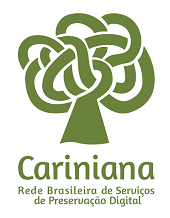Cultural practices and practical school: approaches and specificities in the history teaching
DOI:
https://doi.org/10.5433/2238-3018.2003v9n0p185Keywords:
School education, Memory, Museums, Historical knowledge.Abstract
The school education is looking more and more for establishing a dialogue with other cultural spaces with views to explore what those spaces offer for the knowledge acquisition through the use of other languages and tools. When approximating the students of those spaces the school also waits that the knowledge there acquired and lived contribute for a citizen attitude development, in other words, the problematization of the social uses of the memory and of the actions, relationships and men material and symbolic productions, along the time, in different societies and cultures. In this work, we intended to offer some conceptual and methodological contributions that can guide the History teachers of educational practice and of museums educators in the perspective of the construction of historical knowledge. However, before presenting those possibilities, we will problematize the way how this relationship has been given, in away to throw lights for the construction of new relationships.
Downloads
References
DUTRA, S. F. As crianças e o desenvolvimento da temporalidadehistórica. 2003. Dissertação (Mestrado) - Universidade Federal de Minas Gerais, Belo Horizonte, 2003)
LAVILLE, C.; MARTINEAU, R. L'histoire: voie royale vers la citoyenneté? Édllcation, n 16, out. 1998, p. 34
LAVILLE, C.; ROSENZWEIG, L. Teaching and leaming history developmental dimensions. In: ROSENZWElG, L. W. (dir.). Developmental perspectives of the social studies. Washington, Ness, 1982. p. 54-66.
LAVILLE, C. Psycologic de I' adolescent et l'enseignement historique: le problème de l'acces à la pensée formelle. Cahiers de Clio, n. 43-44, p. 33-34, 1975
DOWEY, M. T.; LEVSTIK, L. S. Teaching and learning History: research bas", Social Educatioll, n. 52, p.340, 1998.
MOLL, L. C. Vygotsky e a Educação: implicações pedagógicas da psicologia sóciohistórica. Porto Alegre: Artes Médicas, 1996.
PAIVA, E. F. 500 anos de hibridismo e impermeabilidade culturais no Brasil: os passeurs culturels. IN: 1500/200: Trajetórias. Unicentro :Newton Paiva, Belo Horizonte, 1999
PIAGET, J. Le développement de la notion de temps chez l'enfant. Paris: Presses, 1973
SIMAN, L. M.C. Aconstrução do conhecimento, do raciocínio histórico e cidadania nas Crianças In: Anais do XX SIMPÓSIO NACIONAL DA ANPUR, 20., 1999, Florianópolis. Anais... Florianópolis: ANPUR, 1999. p.598-605
SIMAN, L. M. C. , COELHO, A R. Opapel da ação mediada na construção de conceitos históricos. MORTIMER, E.; SMOLKA, A M.B. (orgs.). Anais do II Encontro Internacional de Linguagem, Cultura e Cognição. Belo Horizonte, 2003, 19 P(CD-ROM, ISBN: 85-86091)
VIDAL, L.; SILVA, A. I. O sistema de objetos as sociedades indígenas: arte e cultura material. In: SILVA, A. I.; GRUPIONI, L. D. B. A temática indígena na escola: novos subsídios para professores de 1º e 2° graus. Brasília, MEC/UNESCO, 1995.
VYGOTSKY, L. S. A formação social da mente. São Paulo: Martins Fontes, 1984
VYGOTSKY, L. S. El desarollo de los procesos psicológicos superiores.Barcelona: Crítica, 1979
VYGOTSKY, L. S. Pensamento e linguagem, 2e edição. São Paulo: Martins Fontes, 1989.
VYGOTSKY, L. S. Piensamento e Language. IN: Obras Escogidas -Tomo lI. Madri: Visor
WERTSCHI, J..; SMOLKA, A. L. B. Continuando o diálogo: Vygotsky, Bakthin e Lotman. In: Vygotsky em foco: Pressupostos e desdobramentos. Campinas: Papirus, 1994
Downloads
Published
How to Cite
Issue
Section
License
Copyright (c) 2003 História & Ensino

This work is licensed under a Creative Commons Attribution 4.0 International License.
História & Ensino adota a licença CC-BY esta licença permite que os reutilizadores distribuam, remixem, adaptem e criem a partir do material em qualquer meio ou formato, desde que a atribuição seja dada ao criador. A licença permite o uso comercial.






















